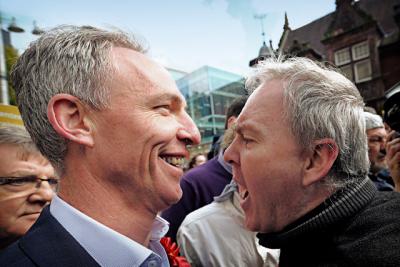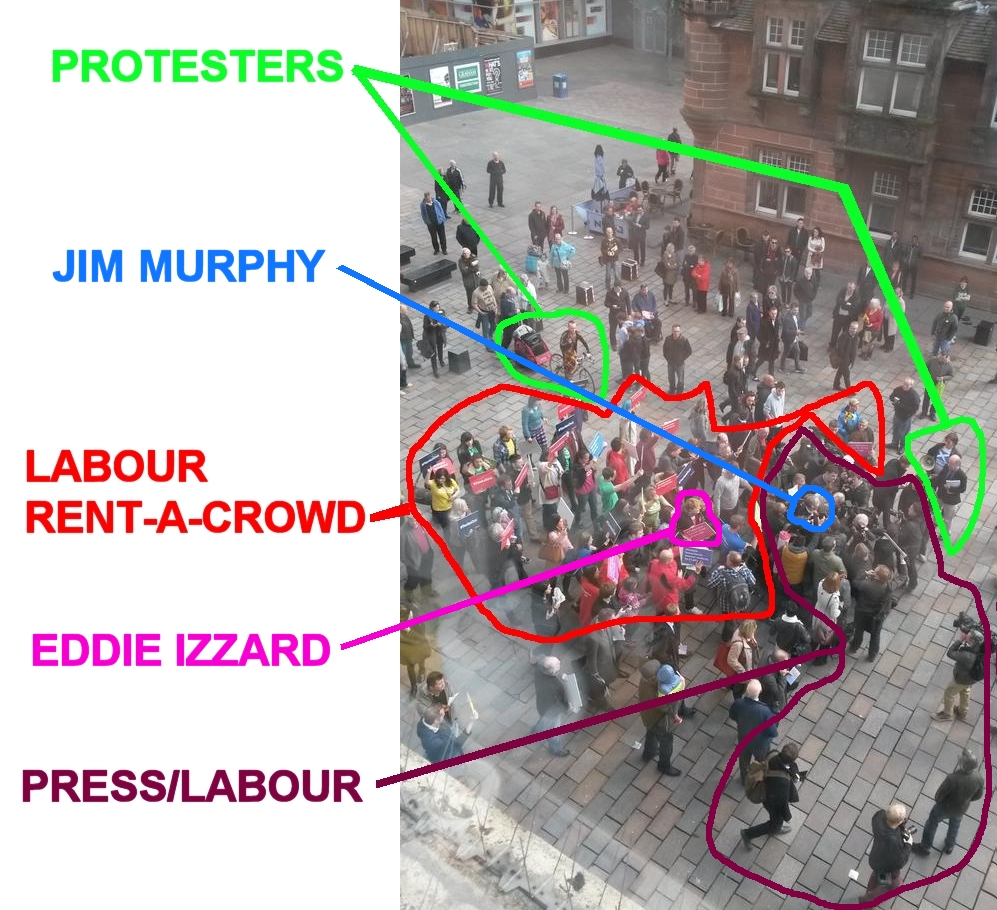Labour Numpties
On Twitter, a bunch of Labour activists led by one Duncan Hothersall are having a hilarious time tweeting and retweeting their incredulity that I should have been both in the St James’ Centre during the fake nationalist “scuffle” with Miliband during the referendum, and at St Enoch’s in Glasgow during the fake Murphy Riot, or that I can be called an “impartial” source.
Well, I was in the St James Centre but I wasn’t anywhere near Glasgow. Nor am I impartial. The Labour numpties are incapable of distinguishing between a blog, and comments on a blog. What they are aiming their hilarity at is a comment left by a lady named Anne Keay at 7.38pm yesterday:
I was there. I am in the photo. I did not plan to be there. I was shopping and heard the crowd and went to watch. I saw nothing except healthy democracy in action – a politician goes walk-about and people gather passionately to protest, call out, crowd in and generally make a lot of fuss and noise, as is their right.
I had read on sites such as yours about these Labour rallies and watched in disgust at the stage managed event unfolded. There was no passion, no attempt to reach out to voters, no attempt to engage with the people of Glasgow. It was a press event, purely and simply. P
I also saw and heard around me, from the few people who watched, only bemused indifference and/or dislike of Labour then, gradually, disgust at the pointlessness of the whole event.
If I had ever believed that Jim Murphy cared one whit about the ‘ordinary’ men and women of Scotland, I would now know better. Neither he or any one of the Labour activists with him had any interest in talking to, engaging with or convincing anyone. It wasn’t about us – it was about tonight’s news and cheap headlines.
I was revolted by the whole thing and, pardon my ignorance, astounded at seeing for myself what depths modern politics Labour style has sunk to.
So far as I am aware I have no connection to Anne Keay, who seems a very reasonable witness. By demonstrating their typical Labour Party stupidity @dhothersall, @stuart_w64 (who has a strange interest in my sexual preferences), @kb32904, @rnzhdad, @BrianSpanner1 have given me reason to highlight Ms Keay’s testimony. To be fair to Hothersall, he has as many followers as there are members of the Scottish Labour Party.
I am so much looking forward to reading their tweets this time on Friday.
I am not going to apologise for not being profound. Have just reduced book from 212,000 words (originally 243,000) to 197,000. About to tackle footnotes which I want to get down from 1,480 to 800. But have a parting thought from David Hume, which points the way forward for the UK: “Let us therefore lay aside all Anger, shake Hands and part Friends.” Somebody might want to leave a comment explaining who David Hume was, for the benefit of Labour Party members.




